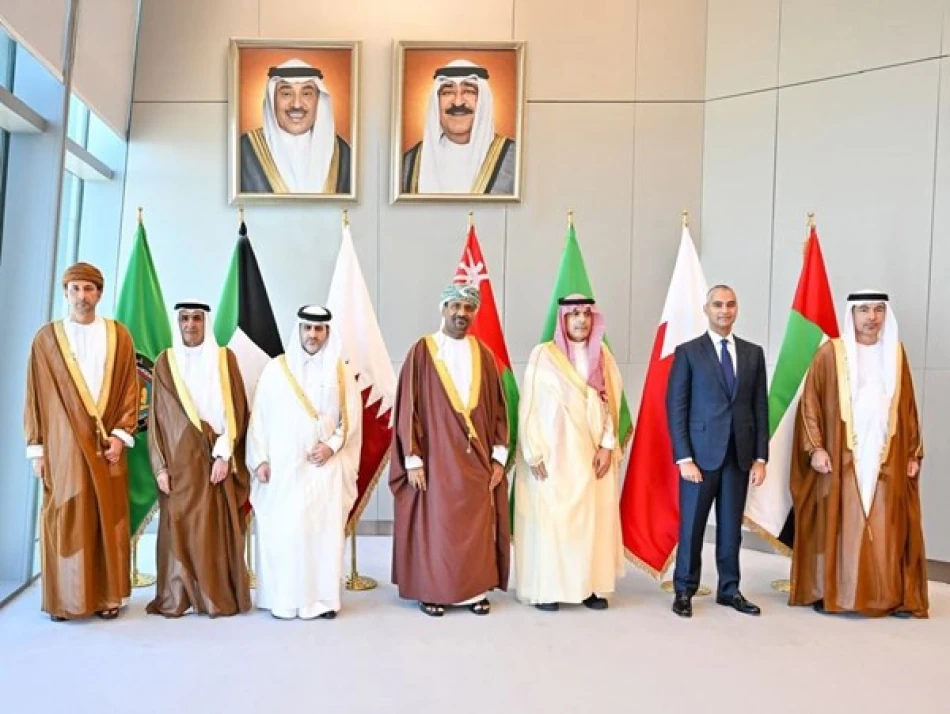
UAE Participates in GCC Central Bank Governors' Meeting in Kuwait
GCC Central Banks Accelerate Financial Integration as Digital Economy Pressures Mount
Gulf Cooperation Council central bank governors convened in Kuwait for their 85th meeting, signaling intensified regional coordination on monetary policy, fintech regulation, and cybersecurity as the oil-rich bloc navigates shifting global financial landscapes. The gathering underscores the GCC's push to harmonize financial systems while competing with Singapore and Hong Kong as regional financial hubs.
Regional Banking Chiefs Chart Unified Course
UAE Central Bank Governor Khaled Mohamed Balama led the Emirates delegation alongside Ibrahim Obaid Al Zaabi, Assistant Governor for Monetary Policy and Financial Stability, joining counterparts from Saudi Arabia, Kuwait, Qatar, Bahrain, and Oman. The high-level participation reflects growing urgency around regional financial integration as global monetary conditions tighten and digital currencies reshape payment systems.
The meeting's agenda revealed the GCC's strategic priorities: payment system modernization, fintech oversight, banking supervision harmonization, and enhanced cybersecurity protocols. These initiatives directly respond to the region's rapid digital transformation, which has accelerated since the COVID-19 pandemic drove contactless payment adoption across Gulf markets.
Fintech Regulation Takes Center Stage
The governors' focus on financial technology regulation comes as the UAE and Saudi Arabia compete to attract crypto exchanges and blockchain startups. The UAE has emerged as a crypto-friendly jurisdiction, licensing major exchanges like Binance and OKX, while Saudi Arabia pursues a more cautious approach through its regulatory sandbox framework.
Harmonizing fintech oversight across GCC borders could create a unified regulatory environment spanning a $2 trillion economy, potentially rivaling the European Union's Markets in Crypto-Assets (MiCA) framework. This coordination becomes critical as traditional banking faces disruption from central bank digital currencies (CBDCs) and private stablecoins.
Cybersecurity Emerges as Strategic Priority
The emphasis on cybersecurity information sharing reflects escalating digital threats targeting Gulf financial institutions. Recent cyberattacks on regional banks, including incidents affecting Saudi and Emirati institutions, have exposed vulnerabilities in rapidly digitizing financial systems.
Cross-border intelligence sharing on cyber threats mirrors similar initiatives by the Federal Reserve, European Central Bank, and Bank of England, suggesting the GCC recognizes cybersecurity as a prerequisite for financial hub ambitions.
Anti-Money Laundering Coordination Intensifies
The governors' discussion of anti-money laundering and counter-terrorism financing initiatives signals continued pressure from the Financial Action Task Force (FATF) and international banking partners. The UAE's removal from the FATF "grey list" in 2022 demonstrated the effectiveness of coordinated regional approaches to compliance.
Enhanced AML cooperation could streamline cross-border banking within the GCC while maintaining international banking relationships critical for oil revenue recycling and sovereign wealth fund operations.
Market Implications and Investor Outlook
For investors, the GCC's coordinated approach to financial regulation suggests reduced regulatory arbitrage opportunities but greater systemic stability. Harmonized payment systems could accelerate intra-GCC trade and investment flows, benefiting regional stock exchanges and banking sectors.
The focus on fintech regulation positions the Gulf as a serious competitor to established financial centers, potentially attracting institutional investment in regional digital asset infrastructure. However, the balance between innovation and oversight will determine whether the GCC captures fintech growth or drives it to more permissive jurisdictions.
As global central banks grapple with inflation, digital currencies, and cyber threats, the GCC's coordinated response demonstrates the bloc's evolution from oil-dependent economies to diversified financial centers. The success of this integration effort could reshape Middle Eastern finance for decades to come.
Most Viewed News

 Layla Al Mansoori
Layla Al Mansoori






